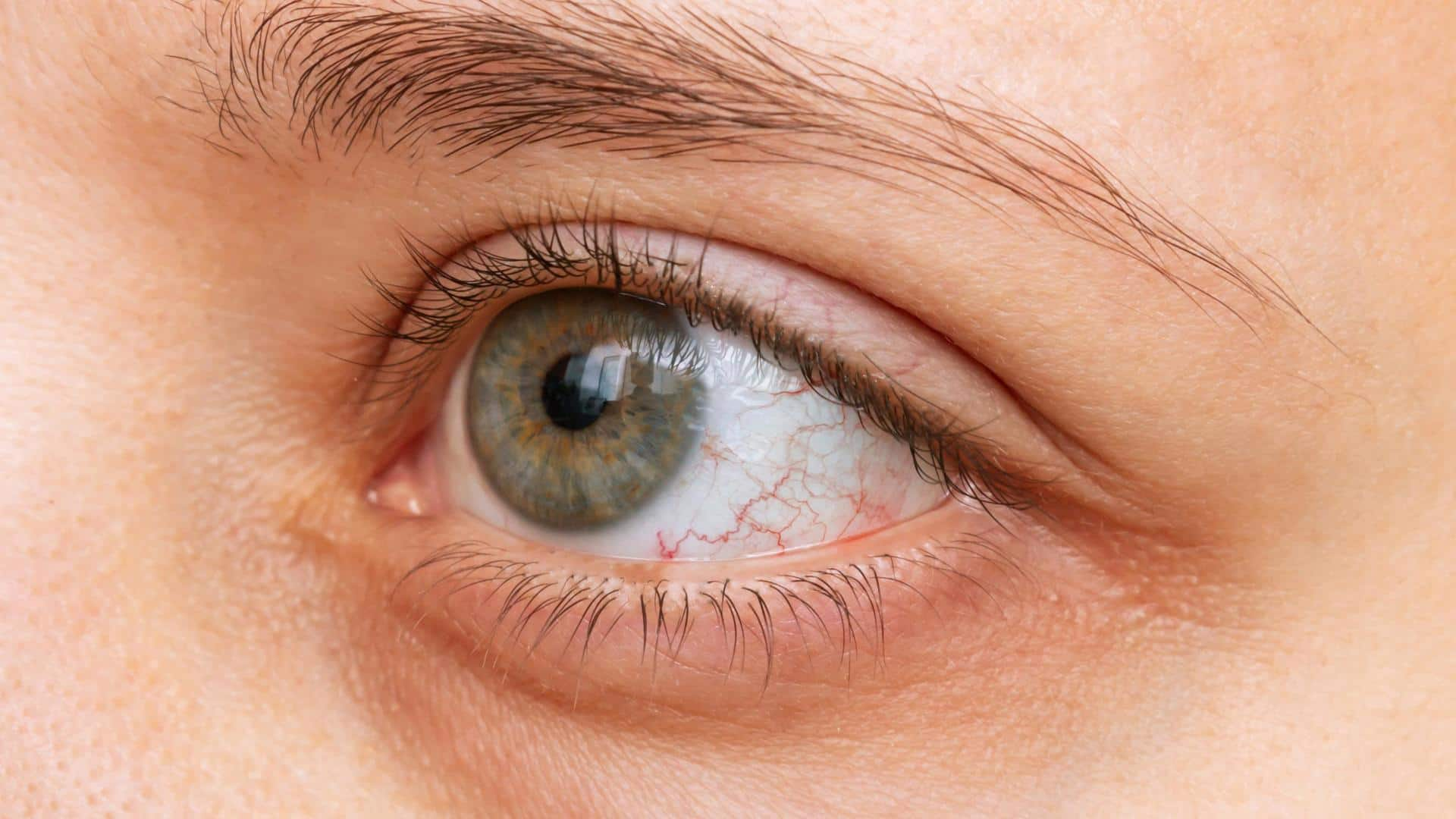
Underlying causes of dry eyes
What's the story
Tears help keep your eyes clean and decrease the risk of developing an eye infection. But when tears run low, your eyes may start stinging, burning, and feeling downright uncomfortable. To make matters worse, your vision can become blurry too. So, if you want to avoid discomfort and keep your eyes healthy, it is wise to educate yourself on what causes dry eyes.
Dry eyes
What is dry eye?
Dry eye is a condition that impacts the tear film, the protective layers of tears covering your eyes' surface. This film keeps your eyes safe and allows you to see clearly and comfortably. But when your tear film gets disturbed, it can lead to unpleasant symptoms. Your eyes might start burning, itching, or watering. It may also cause blurry visions.
Types
Types of dry eye disease
Dry eye disease isn't just about not having enough tears. There are different types to consider. Aqueous deficient dry eye happens when your eyes don't make enough tears due to inflammation in the lacrimal gland. Evaporative dry eye occurs when tears evaporate too quickly because the glands aren't working properly. Mixed dry eye is a combination of inadequate tear production and unstable tear film.
Tear production
When your eyes produce fewer tears
The tear film has three layers - an oily outer layer, a watery middle layer, and an inner mucus layer. These three layers work together to keep your eyes moist and protected. When the glands that make these layers become inflamed or don't produce enough water, oil, or mucus, it leads to dry eye syndrome. Just like when a team is not in sync.
Evaporation
Increased tear evaporation
The oily outer layer prevents tear evaporation and maintains stability, the watery middle layer nourishes and hydrates the eye surface, and the inner mucus layer ensures even tear distribution. When any layer is lacking, the tear film becomes imbalanced. Insufficient oil causes rapid tear evaporation, leading to dryness. Inadequate water or mucus results in insufficient eye surface moisture, causing discomfort and irritation.
Risk factors
Risk factors for dry eye disease
The environment and lifestyle choices play a role, with the weather, screen time, contact lens use, smoking, and allergies increasing the risk of dry eye. Medications such as those for depression, allergies, and blood pressure, along with certain medical conditions like neurological or autoimmune disorders, can also contribute to dry eye. Surgeries like LASIK and cataract surgery may heighten the risk as well.
Management
Home remedies to manage dry eyes
To ease dry eyes at home, avoid allergens, smoke, and wind by wearing protective eyewear. Use a humidifier in your bedroom to add moisture to the air. Applying warm compresses to your eyes for several minutes can help soothe symptoms and produce more lipids. Take breaks and follow the 20/20/20 rule when using screens or reading. Omega-3 fatty acid supplements may also help.